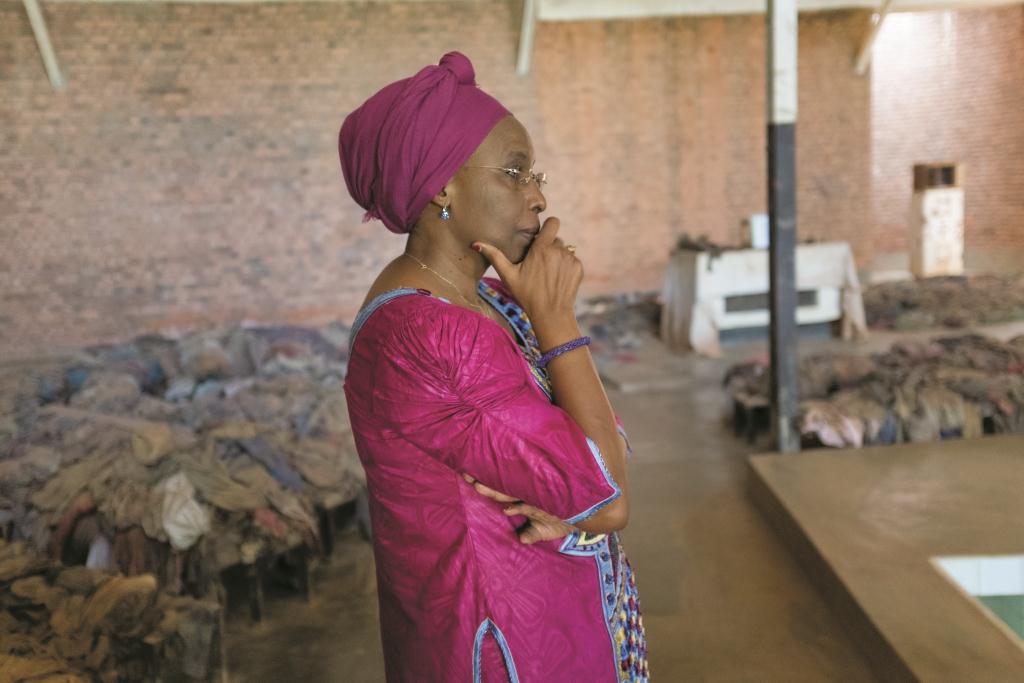When Marguerite Barankitse heard that she had won a prestigious humanitarian award earlier this year, she thought it was a joke. Several months later, sharing the stage with other humanitarians and dignitaries at the Social Good Summit in New York, the 59-year-old Burundian still seems perplexed by all the attention.
“Of course I’m happy to have won a prize but there is nothing special about me,” she told FORBES WOMAN AFRICA on the sidelines of the summit.
“Our mission in life is to show love and compassion. It’s a duty; it’s an obligation,” she said.
For decades, Barankitse has worked to bridge ethnic divides, devoting her life to saving thousands of children caught up in Burundi’s brutal civil war. Her brave, tireless work was finally recognized in April 2016, when she won the Aurora Prize for Awakening Humanity. The Aurora Humanitarian Initiative, an organization inspired by the courage and resilience shown by many people during the genocide that led to the death of 1.5 million Armenians a century ago, bestowed the award.
Barankitse, a Tutsi, was a young woman when she adopted her first child, a Hutu.
“She was a Protestant, I was Catholic. She came from the south, I came from the east,” she said. Barankitse then adopted six more children – four Hutus and three Tutsis.
“I wanted to show people that it is possible for Tutsi and Hutu to be together.”
When war came to Burundi in 1993, Barankitse’s extended family was killed.
Barankitse, who trained as a teacher, wanted to flee with her children to Tanzania but was told that she could bring only her Hutu children as hiding the Tutsi children would be too difficult.
“I said you will never separate me from my children. My dream was to show that we could all live together. I would prefer to die than be separated from my children,” she said.

Barankitse sought safety in the Catholic Diocese where she worked. She tried to save many who were being targeted in reprisal killings and sheltered 72 of them on the same premises.
When the soldiers came, Barankitse pleaded for their lives. “I told them, ‘There are no killers here. They are your brothers’.”
Barankitse ultimately managed to save the lives of many children, even rescuing an injured baby from the back of his dead mother. That baby is now a young adult with a promising future, like many of the others she has rescued and mentored.
In 1993, Barankitse formed a children’s shelter called Maison Shalom, meaning ‘House of Peace’, to give safety to all the Burundi children orphaned by war, regardless of their ethnicity. She also helped unite those who were separated from their families during the 12-year civil war that claimed close to 300,000 lives. Her organization expanded to include schools, hospitals and other resources for rescued children, many whose parents died of AIDS. More than 20,000 children have been given the chance of a new life thanks to her efforts.
Presenting her with the prize in Yerevan, Armenia, earlier this year, Aurora Prize Selection Committee Co-Chair George Clooney said Barankitse was a “reminder of the impact that one person can have when encountering seemingly insurmountable persecution and justice”.
Clooney said he hoped that she would inspire everyone to “stand up on behalf of those whose rights are abused and are in most need of our solidarity and support”.
A proud, elegant woman in brightly-colored traditional dress, Barankitse speaks her mind and laughs a lot. She seems unmoved by the sparkle of celebrity and status swirling around the Social Good Summit, where glamorous stars rub shoulders with humanitarians and VIPs.
In her view, all people are equal and all have a responsibility to help one another. Throughout her life, Barankitse says, she has sought to break down divisions between people and celebrate what unites them. Although she has an unwavering faith in humanity, she also has an equally strong sense of what is wrong with the world. Conflict, she believes, is fueled by poverty and ignorance.
Her outspoken views against war and ethnic division have earned her some enemies at home. When Burundi’s President Pierre Nkurunziza ran for a third term last year, tilting the country towards instability again, Barankitse was threatened with death.
She was forced to flee to neighboring Rwanda last year, where she now lives as a refugee herself, estranged from her home country. She devotes her energies to refugees in the Mahama camp near the border. A branch of Maison Shalom has also been opened in Rwanda to help Burundian refugees as well as local people in need.

Undeterred by exile, Barankitse continues to say what she thinks. She recently spoke out against Burundi’s intention, along with South Africa and Gambia, to leave the International Criminal Court. She is cynical too about the corrupting influence of wealth.
“When I see African ministers sipping champagne in business class as they journey to attend conferences on poverty I say to them, ‘If you want to eradicate poverty, why not start off by traveling in economy’?”, she chuckles. Her prize money gives her $100,000 to spend as she wishes and $1 million to award to other initiatives. She has selected three organizations that help child refugees and orphans and that strive to combat poverty.
Although she herself is now a refugee, she has managed to create a home where all are welcome. She recounts how she recently served dinner to a visiting diplomat. Also seated around the same table were the mentally-ill former prostitute and the ex-child soldiers she has taken in.
It is this ability to see the humanity in everyone and her eschewing of wealth and status that has earned her the praise of Pope Francis. At an event in October in Sweden, the Pope applauded her for her work and for spreading the word of peace, even while she lives in exile. Thanks to her efforts, he said, “Thousands of children can study, grow and enjoy good health.”
